富川二手房网-股票成交了几十股

2023年9月14日发(作者:蔡楠)
赛队风采
建设科技
CONSTRUCTION SCIENCE AND TECHNOLOGY
2018年8月上
总第365期
同济-达姆联队 正能量房4.0
“Y-Container”由三个集装箱呈中心对称布置,以标
准集装箱的尺度拼装出一个主动式住宅。集装箱的系统
给房屋带来快速的现场安装程序与相对低廉的运输成
本,外表皮坚固可靠,在运输途中保护脆弱的保温层。
同时,自由的形状定义反推出了相比前一次参赛更为流
动的建筑平面(图2、图3)。
③ 2012年同济大学再次参加欧洲国际太阳能十项
全能竞赛,此次作品名为“Para-Eco House”,本次
赛队在建筑主体外部搭了一个结构脱离、横跨主体的架
子,整个独立的立面集产电、遮荫、绿化于一体,并在
图竹屋
1
视觉上创造了美妙震撼的外观效果。赛队在当年的“舒
适度”“房屋功能”两个单项获得铜牌,并且得到当届
的最佳立面奖(图4、图5)。
(2)达姆施塔特工业大学
①2007年,第三届美国太阳能十项全能竞赛依旧
在华盛顿举行,在20个参赛队伍中,德国达姆施塔特
工业大学队以1024.855的总分(满分1200分)获得第
一名。达姆施塔特工业大学还获得了其中建筑设计、工
程设计、照明和能量平衡四个单项的第一。设计方案为
单层户型木结构,建筑外轮廓为矩形,场边朝南北。平
面中心偏北的位置有一个集成了所有空调与生活设备、
上下水和控制面板的核心筒,其余为客厅、餐厅、厨房、
卧室一体化的流动空间。南面室外还有一个通长、宽约
1.5米可开可合的缓冲空间,用带有晶硅光伏电池的玻
璃顶覆盖,以铺满太阳能格栅的木门围合(图6、图7)。
Fig.1 Bamboo House
1.历年成绩
(1) 同济大学
①2010年在西班牙马德里皇宫边的曼萨纳雷斯河
畔,同济第一次组队参加了太阳能十项全能竞赛。受到
传统住宅元素的启发,赛队用“竹屋”的概念将中式半
围合庭院的空间意向与立面语言带到了湿热的南欧,“反
宇以盖载”的斜屋顶解决了建筑的采光与排水问题,并
在其上覆盖了刚性保温、空腔通风道与单晶硅主动式光
伏系统。在维护结构的传统表皮之下也蕴藏了VIP真
空保温板与PCM相变材料,缓冲散失的热量(图1)。
②2011年同济大学参加了美国赛区竞赛,
图布局图图外观
2 Y-Container3 Y-Container
Fig.2 Layout of Y-ContainerFig.3 Y-Container appearance
DOI: 10.16116/.2018.15.017
118
∣
建设科技
2018年8月上
总第365期
建设科技
CONSTRUCTION SCIENCE AND TECHNOLOGY
赛队风采
Team TJU-TUDA Energy PLUS Home 4.0
1. Previous Competition Results
(1) Tongji University
①
Decathlon China for the first time at the riverside of the
In 2010, Tongji University participated in the Solar
Manzanares River at the Royal Palace in Madrid, Spain.
Inspired by the traditional residential elements, the team
used the concept of "Bamboo House" to bring the space
intention and the stereoscopic language of the Chinese semi
enclosed courtyard to the hot and humid southern Europe,
"" The oblique roof solved the problem of
daylighting and drainage of the building, and it was covered
反宇以盖载
with the rigid insulation, the cavity ventilation channel and
the monocrystalline silicon active photovoltaic system.
Under the traditional surface of the maintenance structure,
there is VIP vacuum insulation board and PCM phase-
change materials, buffering the heat dissipation (Fig.1).
②
United States Division competition with "Y-container",
In 2011 Tongji University participated in the
who was made from three containers which are central
symmetrical layout, assembled as an active house with the
standard size of container. The container system brings fast
on-site installation procedures and relatively inexpensive
transportation costs to the house, and the outer epidermis is
strong and reliable, protecting the fragile insulating layer in
transit. At the same time, the free shape definition reversed
the more mobile building plane than the previous entry
(Fig.2, Fig.3).
③
in the Solar Decathlon in Europe , the work this time was
In 2012, Tongji University once again participated
called "Para-eco House", the team constructed outside
the main body of the building a shelf which was detached
from the structure and crossed the main body. The whole
independent façade was assembled with electricity
production, shading and greening, and it also created a
wonderful and stunning appearance effect visually. The
team won the bronze medal in the "comfort", "house
function" of the year, and won the best facade award for the
赛队风采
建设科技
CONSTRUCTION SCIENCE AND TECHNOLOGY
2018年8月上
总第365期
图室外效果图
6
Fig.6 Outdoor renderings
图布局图
7
Fig.7 Layout
②达姆施塔特工业大学队以Team Germany参加
了2009年国际太阳能十项全能竞赛,这次的建筑通体
黑色,鳞片一般极具装饰性的玻璃与亚克力外表皮不但
可用于气体交换与防水,其中还嵌入了大面积颜色统一
的光伏电池,整个建筑做了局部夹层,对应的首层部分
相对地平面位置设计了三级踏步下沉,床铺以灵活伸缩
的形式隐藏在台阶中。平面布置依旧采用了一个居中偏
北的核心带,集成管线设备与上下竖井,厨房与卫生间
呈点式。一层淋浴位置与二层床榻位置部分的开窗设置
120
∣
建设科技
了视线保护,正好安装可调节倾角的太阳能组件,实现
功能与技术的一举两得(图8、图9)。
2.设计背景
团队由来自同济大学与达姆施塔特工业大学的师
生组成,希望能把中德两国的设计、技术与市场通过正
能量房4.0的项目结合在一起。项目的目标应该不止步
于一个独栋住宅,通过展示一个舒适与可持续居住空间
应有的样子,把竞赛视为一个真正利好中国住宅现状、
提升太阳能与节能科技的机会。
3.方案介绍
正能量房4.0的概念不仅仅是一座独栋小屋,也考
虑了中国市场现状,具备成为公寓楼中一户单元的可能。
将东西两侧设计为封闭,南北两侧开敞,使得这一原型
保留横向拼接的潜能。竞赛期间会建造一幢适合双亲和
1~2个孩子的家庭住宅作为示例(图10、图11)。
除了本身具备极佳热工性能的南北立面,加设了两
个缓冲区来提高技术和建筑性能。寒冷的冬季,它们成
为气候缓冲层,若在晴天,还可成为阳光房。夏季缓冲
区打开,天花板则成为遮阳构件。过渡季节人们可以直
接进入缓冲区,坐到阳台上,阅读,喝咖啡,就像房间
本身扩大了一样(图12)。
除了可以现场建造的缓冲区,建筑主体结构会由
12个预制钢盒子组成,除了主体结构,每一个盒子在
出厂前会包含所有内装修、固定家具、水电和空调系统。
在盒子拼接处做预留处理,这一安装方式不但保障了灵
活的空间结构,更让建造过程快速、低能耗、零污染。
4.技术介绍与创新亮点
正能量房4.0技术介绍图如图13所示。
(1)双面发电光伏组件
本次同济-达姆赛队采用“双面双玻”1500V系
列光伏组件,由晶澳太阳能有限公司研发制造并赞助提
供。其特点是晶硅电池的安装背板采用玻璃制作,因此
太阳光可以穿透电池间隙,照射到背部的屋顶面层或其
他构建上漫反射回来,这时位于背面的另一层晶硅阵列
就可以工作,产生大于单面组件的发电功率。
2018年8月上
总第365期
建设科技
CONSTRUCTION SCIENCE AND TECHNOLOGY
赛队风采
图室外效果图
8
Fig.8 Outdoor renderings
图技术介绍图
9
Fig.9 Technical chart
part, which can just be used to install adjustable tilt of the
solar module, to achieve the function and technology at the
same time (Fig.8, Fig.9).
2. Design Background
Tongji University and Technische Universität Darmstadt,
The team is composed of teachers and students from
hoping to combine the design, technology and market of
China and Germany with the project of Energy PLUS Home
4.0. The goal of this project is not only to build a single
house, the project regards the competition as a real boon
for China's housing status, solar energy and energy-saving
technology by demonstrating a comfortable and sustainable
living space.
3. Scheme Content
a single house, but also considers the Chinese market
The concept of Energy PLUS Home 4.0 is not only
situation, with the possibility of becoming a unit in the
apartment building. Team TJU-TUDA will design the
east and west sides enclosed, both sides of the north and
south open, making this prototype to retain the potential
of horizontal splicing. Team TJU-TUDA will be building
a family house for parents with 1-2 children during the
competition as an example (Fig.10, Fig.11).
of the north-South facade, the project has added two buffers
In addition to its own excellent thermal performance
to improve technical and architectural performance. During
the cold winter, they become the climate buffer layer, when
on a sunny day, they can also become the sun room. During
the summer, the buffers are open, and the ceiling becomes
the sunshade element. During the transition season, people
can go directly to the buffer zone, sit on the balcony, read
and drink coffee, just like the room itself expands ( Fig 12).
the main structure of the building will be composed of 12
In addition to the on-site construction of the buffers,
prefabricated steel boxes, in addition to the main structure,
each box will include all internal decoration, fixed furniture,
hydro-electric and air-conditioning systems before leaving
the factory. Reservation was made at the area for box
赛队风采
建设科技
CONSTRUCTION SCIENCE AND TECHNOLOGY
2018年8月上
总第365期
2.5m通宽的玻璃门在中部有一个竖档,一般是推拉式移
门,另一半固定。这会带来非常巨大的实际重量,而优质
的五金件为门窗带来并不沉重的开合体验。另外,关闭状
态下两边的三层中空玻璃位于同一水平位置,从外侧看不
出哪一扇是固定扇;当移动的一扇需要开启时,需要将窗
户从水平面向内拉出,再进行侧向运动(图18、图19)。
(5)阳光板蓄热墙
东西两侧的外墙在集合住宅中的意义不大,仅仅是长
度占比并不高的建筑山墙或者户与户之前的分割,但是竞
赛当中会展现出来,而且赛队所在18号基地的东侧还面
图技术介绍图
13
临整个赛场园区的主轴线。这时采用年限不长而较为廉价
的聚碳酸酯阳光板就非常合适。这种板材不但有着和玻璃
不同的特殊透明肌理,在对材料的坚固性要求较低时得以
有机会展示,而且比玻璃更为透光且隔热。太阳光穿透阳
光板后加热了背后被漆成深蓝的内层墙体,整个侧墙形成
特隆布墙体原理。被加热的空气随即通向北侧缓冲区,使
得没有机会利用本身的阳光房效应来蓄热的北面在冬季白
天能达到和南侧相似的热工效果(图20、图21)。
(6)钢结构预制模块
考虑到材料的可持续使用以及中国钢材产能过剩
问题,主要结构材料被选用为钢。而遵照建筑初步设计
的模数,整个去掉前后缓冲区的主体部分被分成了12
个钢制盒子,也就是说每根中间部位的柱子都是由左右
两个盒子的单侧槽钢拼成的一个完整工字型,隔墙也会
分为两半在不同的盒子分开制作龙骨与面层并最终贴在
一起。每一个盒子的开间等于建筑轴线距离2.5m,所
对应的内部结构主体都完全相同,只需要对隔墙与地面
龙骨进行定制。除了结构以外,届时内装修、设备、固
定家具也将包含在预制盒子中,这是一种全系统的预制
理念。而SDC2018的现场搭建总时间为20天,赛队的
结构设计保证建筑概念可行的同时成为作品按时完成的
Fig.13 Technical chart
(2)气凝胶保温材料
建筑外围护墙体和屋顶计划选用玻璃纤维复合气
凝胶材料,是一种理论保温性能略逊于真空保温板,但
是寿命很长,且耐火防水,适合用在没有缓冲区保护的
山墙与屋顶部分。同时,允许任意切割和弯折,不受附
着表面形状与弧度限制(图14、图15)。
(3)毛细管地暖与冷辐射吊顶
虽然竞赛测试时间位于夏季八月,但是作为永久使
用的建筑配备了完整的辐射采暖与制冷装置。达到同样
舒适条件时,辐射供暖的室内设计温度可降低2℃,辐
射供冷时可提高0.5℃~1.5℃,从而降低能耗。空气
源热泵室内机、分集水器、管线结构集成在建筑面层空
间一层一层统一的设备房内(图16、图17)。
(4)三层中空玻璃保温窗
随着技术进步,人们应该已经过了让保温节能与通透
明亮不可兼得的年代。本次竞赛作品中的门窗将由中国本
土企业供货,由山东省设厂加工的北京米兰之窗提供,获
得德国Passive House Institute的被动式认证。所有南侧
图气凝胶保温材料图保温材料的安装
1415
Fig.14 Aerogel heat insulation materialFig.15 Insulation material installation
122
∣
建设科技
2018年8月上
总第365期
建设科技
CONSTRUCTION SCIENCE AND TECHNOLOGY
赛队风采
图毛细管地暖图冷辐射吊顶
16 17
Fig.16 Capillary floor heatingFig.17 Radiant suspended ceiling
4. Technical introduction and innovation
highlights
Fig.13.
Technical chart of Energy Plus Home 4.0 is shown as
(1) Double-sided photovoltaic modules
double glass” 1500V series photovoltaic modules, which
This time the Tongji team adopted the “double-sided
were developed, manufactured and sponsored by JA Solar
Co., Ltd. It is characterized in that the mounting back plate
of the crystalline silicon battery is made of glass, so the
sunlight can penetrate the battery gap, and irradiate to the
back side of the roof surface or other structures then diffuse
back, and then another layer of crystalline silicon on the
back side can work to produce more power than single-
sided components.
(2) Aerogel heat insulation material
glass fiber and aerogel material. Theoretically, it is a kind of
The outer wall of the building and the roof are made of
material insulation performance slightly lower than vacuum
insulation board, but it has a long life and is refractory
and waterproof. It is suitable for gables and roofs without
buffer protection. while also allowing arbitrary cutting and
bending without being restricted by the shape and curvature
of the attached surface (Fig.14, Fig15).
ceiling
(3) Capillary floor heating and Radiant suspended
August, for permanent use, the building is equipped with
Although the competition test time is located in
a complete radiant heating and cooling unit. When at the
same comfort conditions, the indoor design temperature of
radiant heating can be reduced by 2 ° C, and the radiation
cooling can be increased by 0.5 to 1.5 ° C, thus reducing
energy consumption. The air source heat pump indoor unit,
the sub-catchment and the pipeline structure are integrated
in the equipment room of the building surface space.
(Fig.16, Fig.17).
(4) Three-layer insulating glass thermal window
have passed the era of unable to keep energy conservation
With the development of technology, people should
and transparency. The doors and windows in SDC2018
will be provided by local Chinese companies MILUX,
which is factory-processed in Shandong Province, which
products have been passively certified by the Passive House
Institute in Germany. All the south side 2.5m-wide-glass
赛队风采
建设科技
CONSTRUCTION SCIENCE AND TECHNOLOGY
2018年8月上
总第365期
图阳光板蓄热墙图阳光板蓄热墙
20 21
Fig.20 Solar panels thermal storage wallFig.21 Solar panels thermal storage wall
必要保证(图22、图23)。也将成为娱乐、洗车用水的来源,作为竞赛场地特有元
(7)结构木梁断桥设计素起到锦上添花作用。
在同济大学队的项目中,结构系统还创新性地为建(9)亚麻室内地板
筑热工性能作出了贡献,那就是处于非采暖区域的阳台占据两层共130平方米的室内实用面积需要布置足
结构梁与建筑主体钢盒子的连接。本方案的概念既然涉够高品质的地板,既能有良好的触感与视觉效果,又能
及多高层的设想,就只能用通用方法来解决,不能回避配合毛细管地暖使用。由荷兰品牌福尔波(Forbo)公
阳台与主体结构的连接。而最终的解决方案为木梁。用司生产的亚麻地板依托一种传统欧洲工艺,以不含有害
高级工程木穿越外维护结构,木与钢的连接件包裹在木物质的纯天然亚麻材质为主要原料,制造出可弯曲,成
梁内部,木梁本身较为粗大,因为不但涉及结构承重与卷储存,厚约2.5mm的地板产品,但是一旦敷设完毕,
抵抗测量扭力的需要还要考虑防火(图24)。材料表面坚固耐用。这个产品最大的好处是可以自由地
(8)景观品质与微气候裁切与分割,且拼接后几乎没有肉眼可见的缝隙,于是
由于一层平台架空空间不足,同济-达姆联队的就可以用色块与几何图案代替普通木地板重复的填充肌
给排水方案里不包括灰水处理与再利用的部分用于竞赛理来设计建筑地面(图25、图26)。
展示,但是在场地上还是设置了一片水池,通过自然雨(10)攀爬墙系统
水搜集与自来水补充。首先配合水生植物、汀步地埋灯由于上下交通被放置在了被缓冲区,大部分情况下不
等亮点,水池本身作为参观者进入建筑流线的必经路段,会存在舒适度问题。但少数的极端气候状况,室内以装饰性
可以加深评委的主观映像。更重要的是,水池位于建筑为主的通高空间墙面就可以变成灵活拆装的室内竖向交通
西面,炎热夏季西面会产生不利的环境,水池通过自然系统。而这些踏步不用时,墙面可以转换为储物空间。在
蒸发一定程度上调节了这一部分的微气候。另外,水池实际竞赛展示中,通高墙体将被设计为颇有趣味的攀岩系
图钢结构预制模块图钢结构预制模块
22 23
Fig.22 Prefabricated Module by Steel StructureFig.23 Prefabricated Module by Steel Structure
124
∣
建设科技
2018年8月上
总第365期
建设科技
CONSTRUCTION SCIENCE AND TECHNOLOGY
赛队风采
图结构木梁断桥
24
Fig.24 Structural wooden beam
for amalgamated dwelling. They are served as the building
gables or the division of the units, but they will be displayed
in the competition. it is very suitable to use a polycarbonate
solar panel which is not long but cheap. This kind of sheet
not only has a special transparent texture different from
glass, but also has the opportunity to display when the
material's robustness is low, and it is more transparent and
heat-insulated than glass. After the sun shines penetrate the
sun plate, it heats the inner wall that is painted into dark
blue, and the entire side wall follows Trombe wall principle.
The heated air then leads to the north side buffer zone, so
that the north side that does not have the opportunity to use
its own solar house effect to accumulate heat can achieve
similar thermal effects as the south side during the winter
day (Fig20, Fig21).
(6) Prefabricated Module by Steel Structure
Considering the sustainable use of materials and the
overcapacity of steel in China, steels were selected as the
赛队风采
建设科技
CONSTRUCTION SCIENCE AND TECHNOLOGY
2018年8月上
总第365期
图亚麻室内地板图亚麻室内地板
2526
Fig.25 linen indoor floorFig.26 linen indoor floor
统,依然没有放弃为儿童提供娱乐设施的想法(图27)。大学-达姆施塔特工业大学联队的经费来自多个渠道,
(11)高品质卫浴洁具系统主要为同济大学参赛团队自筹资金。
建筑室内的给排水设备终端拥有非常好的工业设房屋的建造成本是费用支出的主要部分,其中材料
计,与彩灰色的地面形成对比,所有卫浴陶瓷件呈现亮费的85%由总共21家国内外行业领先的企业赞助,共
光白色,整体为方形有棱角的造型风格,包括座便器。计约160万元。如北京米兰之窗节能建材有限公司提供
来自德国品牌杜拉维特(Duravit)的支持,座便器采了三层中空与真空玻璃的保温门窗,这种平移被动窗为
用后排水悬挂式,为室内留出了整洁和易维护的空间。国内首创,在本项目中第一次使用;纳诺科技有限公司
作为回报之一赛队在厕所墙壁上设计了一块通电雾化玻提供了具有低导热系数的憎水耐火玻璃纤维气凝胶,为
璃展示隐藏在墙壁内的冲厕水箱与支架模块,当通电状该公司与同济大学合作自主研发的高品质保温材料;日
态切换时原本与白色墙壁面层融为一体的乳白色磨砂玻照大象房屋建设有限公司提供了该公司领先于市场水平
璃会呈现全透明,既充当赞助企业的展示窗口,也面向的钢结构预制装配系统;晶澳太阳能有限公司在本项目
参观者宣传了高品质的产品技术原理(图28)。展示了其最先进的双面双玻光伏组件;科思创聚合物(中
国)有限公司提供了聚碳酸酯板、透水地坪、易清洁墙
面漆等环保建筑材料;上海东方雨虹防水技术有限责任
公司提供了整套建筑防水密封材料。建筑的空气调节系
统、卫浴厨房一体化系统等均来自国内外知名企业赞助。正能量房4.0的概念不仅仅是一座独栋小屋,也考
此外,项目的施工费、普通建材的材料费以及各项虑了中国市场现状,具备成为公寓楼中一户单元的可能。
杂费由同济大学的多项基金项目资助,同时还得到本届将东西两侧设计为封闭,南北两侧开敞,使得这一原型
十项全能竞赛组委会启动金的支持。这些力量都在为赛保留横向拼接的潜能(图29)。
队项目的顺利进展保驾护航。基于中国中大型城市的住宅市场现状,高层公寓的
5.推广前景
可能性也被考虑在内。
除此以外,得益于预制拼装的盒子体系,同一个单
元内部户型也可以灵活改变。如果是独栋住宅,则随着
家庭结构改变,户型可以由住户自主实现变动;如果是
多高层公寓,则这个系统由开发商在设计阶段灵活运用,
在体系不变的情况下快速开发不同目标定位的产品。
6.经费来源
与以往的太阳能十项全能竞赛不同,此次竞赛同济
图攀爬墙系统
27
Fig.27 Climbing wall system
126
∣
建设科技
2018年8月上
总第365期
建设科技
CONSTRUCTION SCIENCE AND TECHNOLOGY
赛队风采
without changing the basic system.
6. Fund Source
Different from the previous solar decathlon competition,
this time in SDC2018 the Tongji University-Technische
Universitat Darmstadt is funded by multiple channels, which
mainly raised by Tongji University team itself.
The construction cost of the house occupied the main
part of the expenses which is totally about 1.6 million
yuan, and 85% of the material cost is sponsored by a total
of 21 leading companies both domestic and foreign. For
example, MILUX (Beijing Milan Window Energy-saving
Building Materials Co., Ltd) provides three-layer hollow
and vacuum glass insulation doors and windows. It is the
first time that “translating passive windows” were used in
project in China. Nano Technology Co., Ltd. provides low
thermal conductivity high-quality insulation material which
is a kind of hydrophobic fireproofing glass fiber aerogels.
The material is independently developed by the company
in cooperation with Tongji University; Rizhao ANYFUN
HOME Co., Ltd. provides the company's market-leading
steel structure prefabrication system; Jingao Co., Ltd. has
demonstrated its most advanced double-sided double-glass
PV modules in this project; Covestro Polymers (China) Co.,
Ltd. provides environmentally-friendly building materials
such as polycarbonate sheets and permeable floors;
SHANGHAI Oriental Yuhong Waterproof Technology Co.,
Ltd. provides a complete set of waterproof sealing materials
for buildings. The building's air conditioning system and
bathroom kitchen integration system are all sponsored by
well-known companies at home and abroad.
In addition, the construction fee of the project, the
material fee and other incidentals expenses were funded
by various fund projects of Tongji University, and also
supported by the start-up fund of the SDC2018 organizing
committee. These forces are escorting the smooth progress
of the team project.
图卫浴洁具系统
28
Fig.28 Sanitary ware system
are not in use, the wall can be converted into a storage
倒虹吸原理-中国卫星股票
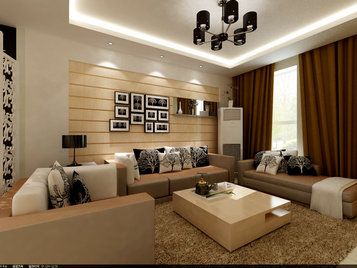
更多推荐
house 365



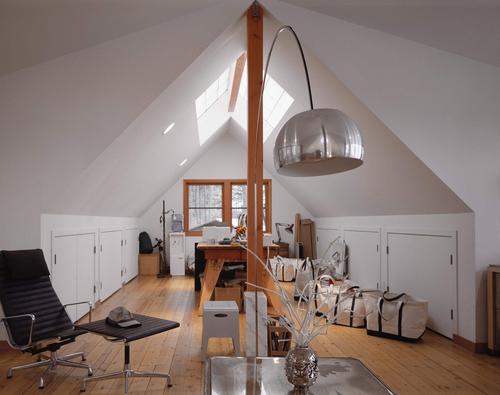
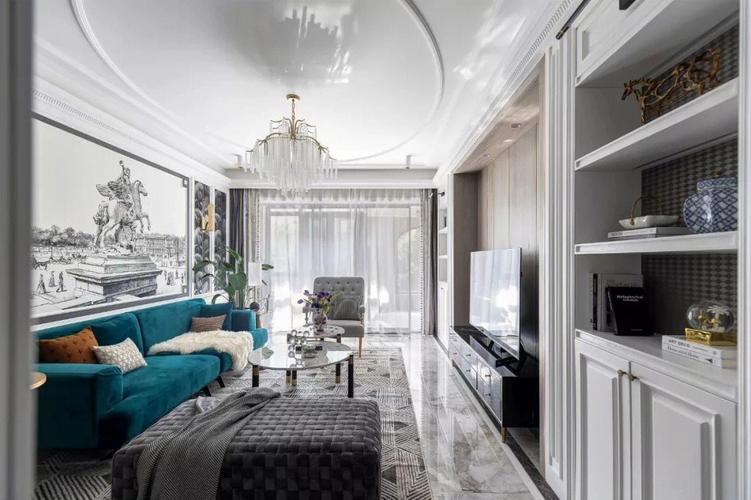
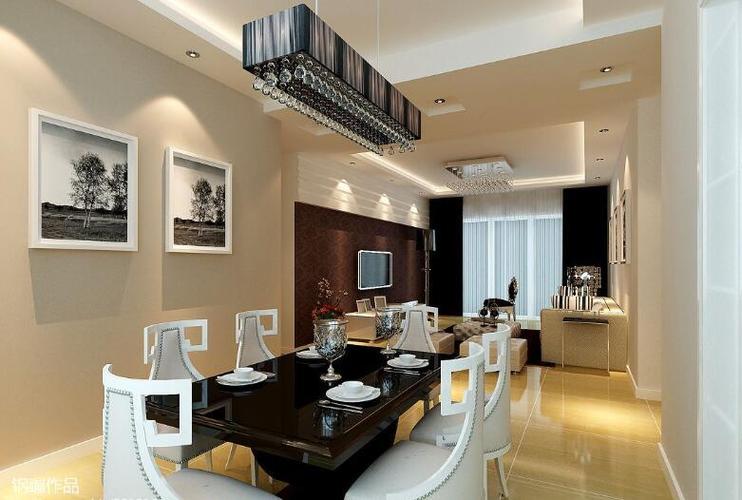
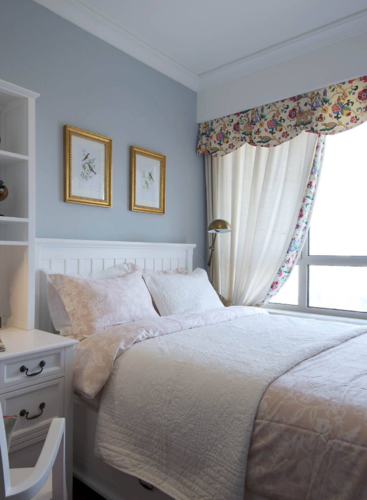

发布评论